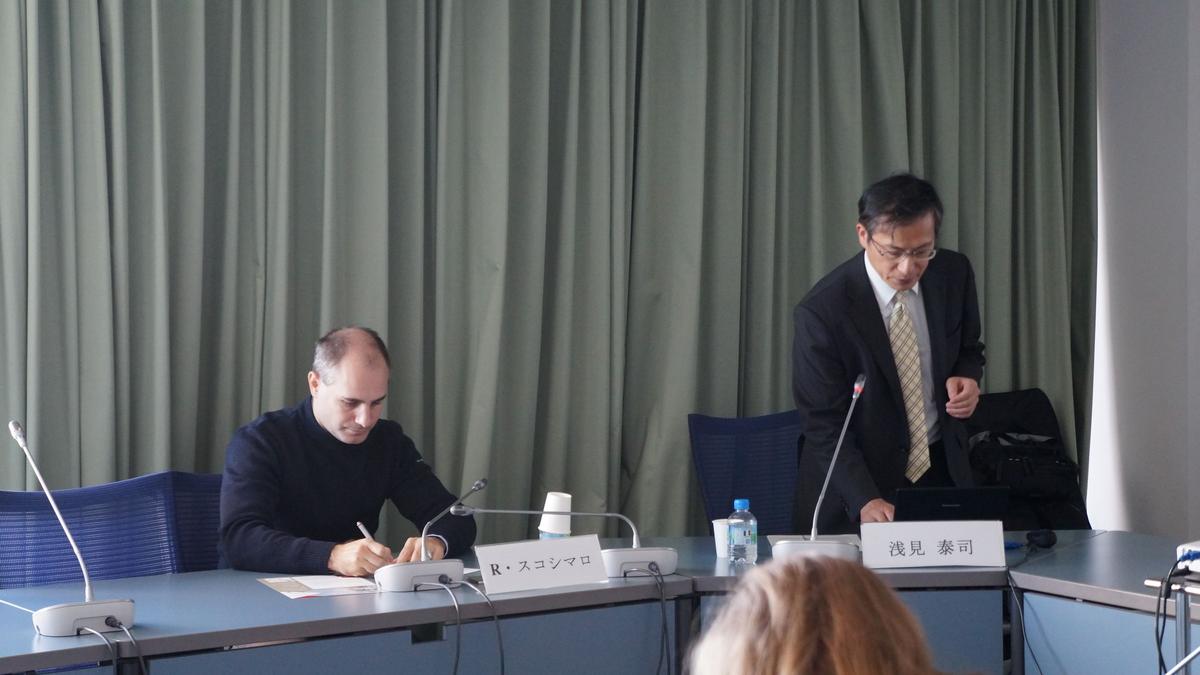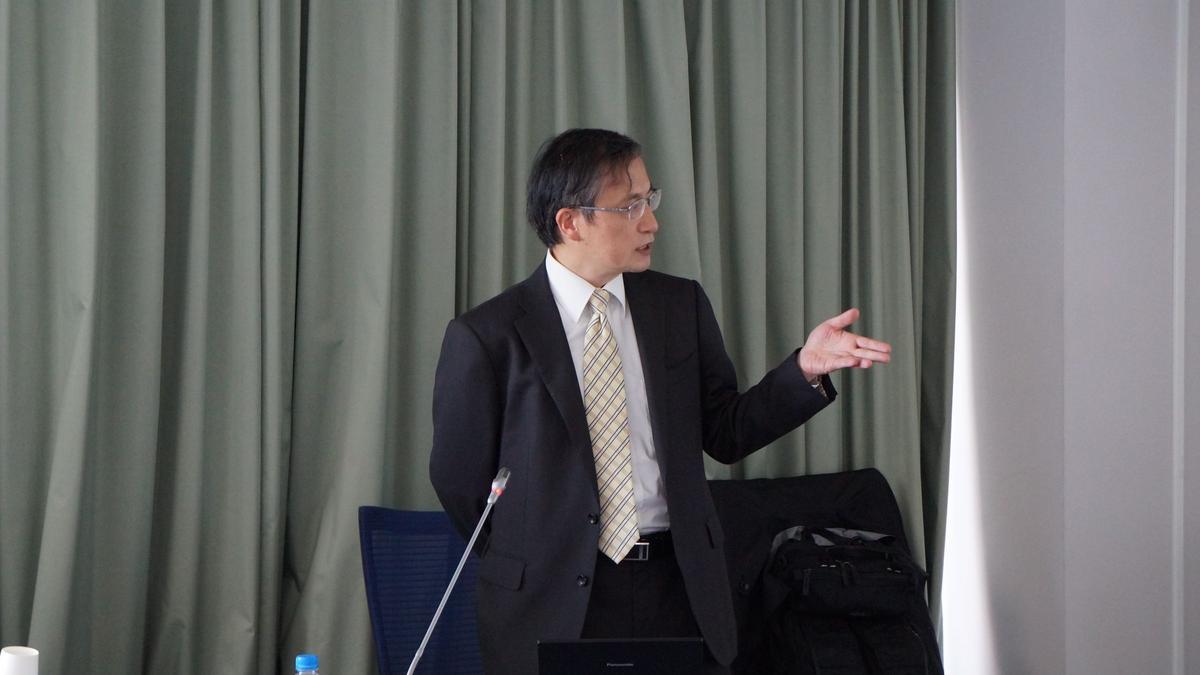Informes de eventos • Event report • Tidigare event • Balanço Eventos • Rendezvény beszámolók • CCIFJイベント • Tidligere arrangementer • Etkinlik raporları • Bilantul evenimentului • Referat fra arrangementer • Terugblik op evenement • Izveštaji sa događaja • Огляд заходів • Отчет о мероприятиях • Απολογισμός εκδηλώσεων • 행사 • Raportit tapahtumista • Naše podujatia • Равносметка за събитие • Përmbledhja e eventeve • Ze života komory • Rückblick auf... • Bilans d’évènement
A Compact City for All

On October 30th, 2017, the Maison Franco-Japonaise (Nichifutsu kaikan), in collaboration with the French Chamber of Commerce and Industry in Japan, welcomed Yasushi Asami, professor of urban engineering at the University of Tokyo and specialized in urban planning, housing policy, and spatial information science. He offered a presentation on the benefits of compact city planning for all in Japan.
The presentation started with a definition of what a compact city is: namely an urban planning concept based on the restriction of the suburbanisation, a decrease of the urban area and the restraining of the automobile traffic. Adding to that definition, Pr. Asami gave the basic elements of a compact city: an increase of the urban density, hierarchical urban cores, a limitation of the spread of an urban area, a will to refrain from using automobiles, the ability to use green and open spaces, and the possibility to connect the city thanks to a strong, dense, efficient, developed, reinforced public transportation network.
Underlying the importance of “for all”, Pr. Asami gave beneficial effects for the society of the establishment of a compact city: mainly, an improvement of the public health and the environment, a vitalisation of the city centre, and an attractiveness of the city by the use of its cultural and historical resources. All these consequences result in an attractiveness for investments.
On the other hand, Pr. Asami gave several concerns against the promotion of a compact city: primarily to what extent that concept can be set up, the effectiveness of those measures and the question of the suburbs discarded by this urban planning. Moreover, this concept can take time to be implemented and the benefits to be noticed. Therefore, this planning can be hard to defend to populations who tend to prefer a middle ground between the previous urban planning and the compact city.
That is why a proper policy to approach compact cities and a strategy for restructuring cities are necessary. With this goal in mind, several acts were passed such as the Low Carbon City Act (December 4, 2012) that lead to tax deduction measures and the deregulation of floor area ratios.
It requires funds to achieve the goal of a compact city for all. According to Pr. Asami, the benefits and costs should be shared by all, which would lead to a fair allocation of social welfare and a rational decision of social policies. He, then, asked if this basic requirement could be improved to find a fair allocation of benefits, cost burden and compensation system. In his opinion, taxation could be used to achieve fair allocation, but then how and relying on which kind of taxation? Should the taxes be based on benefits or on those who can pay?
Pr. Asami concluded with a reflection on the reasons for not achieving compact city planning yet. It can be summarized by a distortion of the burden, the strong protection of vested interests, the question of an appropriate compensation when retreating to an area, the rational procedure for consensus building, and the social system reform in the era of depopulation.
The presentation was followed by a Q&A session.


